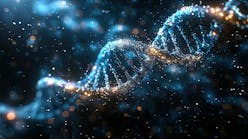The identification of potentially targetable kinase mutations has been an exciting advancement in lung cancer treatment. Although the mutations driving many lung carcinomas remain unknown, approximately 50% of lung adenocarcinoma cases harbor KRAS mutation, EGFR mutation, or ALK translocation, and an additional 5% have been shown to have mutations involving BRAF, PIK3CA, HER2, MET, MEK1, NRAS, and AKT. In the vast majority, these driver mutations are mutually exclusive. But in a recent study published in the Journal of Thoracic Oncology researchers found that tumors with ALK rearrangements can harbor additional mutations.
Researchers looked at 25 cases of pulmonary adenocarcinoma surgically treated at Mayo Clinic between 1999 and 2007 with ALK gene rearrangement, confirmed by break-apart fluorescent in situ hybridization (FISH) and immunohistochemistry (IHC). Using the DNA extracted from formalin-fixed paraffin-embedded tumor samples, a MassArray-based Lung Cancer Mutations Screening Panel was performed to test for 179 individual mutations in 10 genes, with positive results confirmed by sequencing.
They found additional mutations in five of 25 ALK positive cases. Four of these were point mutation in the MET gene that are of unknown clinical significance, since they may represent germline polymorphisms. However, one case had an EGFR mutation, further supporting that EGFR mutations can be present in ALK rearranged tumors, although it is rare.
Further research is needed to determine if patients with coexisting EGFR mutation and ALK gene rearrangement may have altered response to EGFR or ALK inhibitors. This will help determine whether these drugs should be used in a synchronous or sequential fashion for maximum benefit. Read the study abstract.





